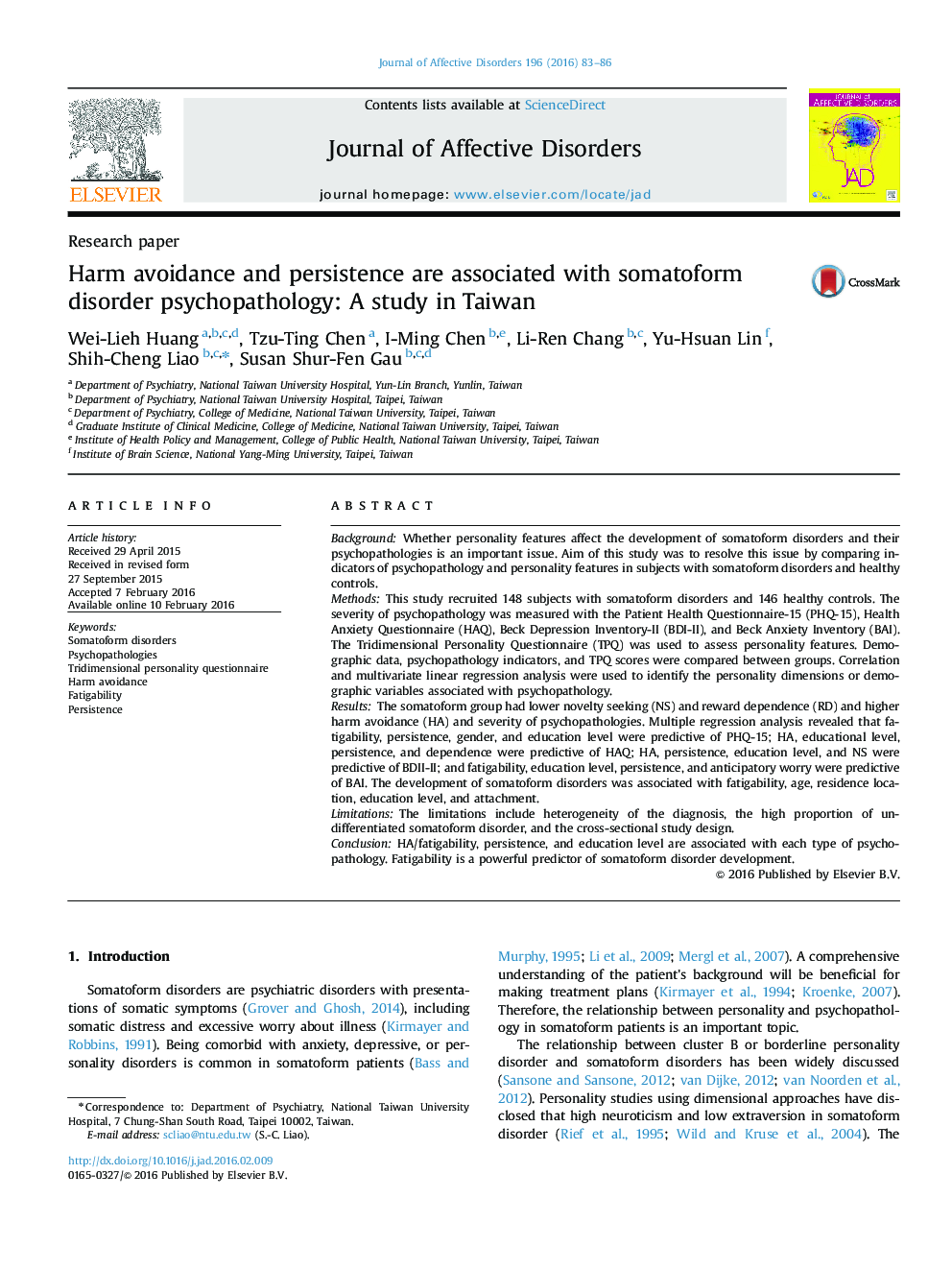| Article ID | Journal | Published Year | Pages | File Type |
|---|---|---|---|---|
| 6230314 | Journal of Affective Disorders | 2016 | 4 Pages |
â¢Low novelty seeking/reward dependence, high harm avoidance are features of somatoform patients.â¢Harm avoidance, persistence, and education, are associated with psychopathologies.â¢Fatigability is the most powerful predictor of somatoform disorder development.
BackgroundWhether personality features affect the development of somatoform disorders and their psychopathologies is an important issue. Aim of this study was to resolve this issue by comparing indicators of psychopathology and personality features in subjects with somatoform disorders and healthy controls.MethodsThis study recruited 148 subjects with somatoform disorders and 146 healthy controls. The severity of psychopathology was measured with the Patient Health Questionnaire-15 (PHQ-15), Health Anxiety Questionnaire (HAQ), Beck Depression Inventory-II (BDI-II), and Beck Anxiety Inventory (BAI). The Tridimensional Personality Questionnaire (TPQ) was used to assess personality features. Demographic data, psychopathology indicators, and TPQ scores were compared between groups. Correlation and multivariate linear regression analysis were used to identify the personality dimensions or demographic variables associated with psychopathology.ResultsThe somatoform group had lower novelty seeking (NS) and reward dependence (RD) and higher harm avoidance (HA) and severity of psychopathologies. Multiple regression analysis revealed that fatigability, persistence, gender, and education level were predictive of PHQ-15; HA, educational level, persistence, and dependence were predictive of HAQ; HA, persistence, education level, and NS were predictive of BDII-II; and fatigability, education level, persistence, and anticipatory worry were predictive of BAI. The development of somatoform disorders was associated with fatigability, age, residence location, education level, and attachment.LimitationsThe limitations include heterogeneity of the diagnosis, the high proportion of undifferentiated somatoform disorder, and the cross-sectional study design.ConclusionHA/fatigability, persistence, and education level are associated with each type of psychopathology. Fatigability is a powerful predictor of somatoform disorder development.
